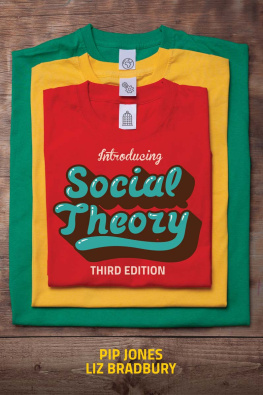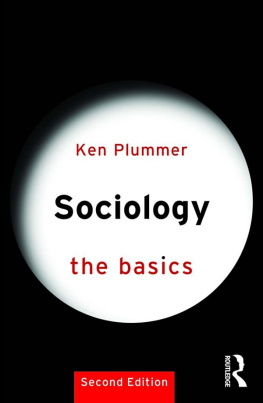First published in 1974
This edition first published in 2015
by Routledge
2 Park Square, Milton Park, Abingdon, Oxon, OX14 4RN
and by Routledge
711 Third Avenue, New York, NY 10017
Routledge is an imprint of the Taylor & Francis Group, an informa business
1974 John Rex
All rights reserved. No part of this book may be reprinted or reproduced or utilised in any form or by any electronic, mechanical, or other means, now known or hereafter invented, including photocopying and recording, or in any information storage or retrieval system, without permission in writing from the publishers.
Trademark notice: Product or corporate names may be trademarks or registered trademarks, and are used only for identification and explanation without intent to infringe.
British Library Cataloguing in Publication Data
A catalogue record for this book is available from the British Library
ISBN: 978-0-415-72731-0 (Set)
eISBN: 978-1-315-76997-4 (Set)
ISBN: 978-1-138-78607-3 (Volume 75)
eISBN: 978-1-315-76326-2 (Volume 75)
Publishers Note
The publisher has gone to great lengths to ensure the quality of this reprint but points out that some imperfections in the original copies may be apparent.
Disclaimer
The publisher has made every effort to trace copyright holders and would welcome correspondence from those they have been unable to trace.
First published in 1974
by Routledge & Kegan Paul Ltd
Broadway House, 6874 Carter Lane,
London EC4V 5EL and
9 Park Street,
Boston, Mass. 02108, USA
Set in Times Roman, leaded
and Printed in Great Britain by
Unwin Brothers Limited
The Gresham Press
Old Woking, Surrey
John Rex 1974
No part of this book may be reproduced in
any form without permission from the
publisher, except for the quotation of brief
passages in criticism
ISBN 0 7100 7858 7
Library of Congress Catalog Card No. 7393637
This book is written out of a deep conviction that sociology is a subject whose insights should be available to the great mass of the people in order that they should be able to use it to liberate themselves from the mystification of social reality which is continuously provided for them by those in our society who exercise power and influence. This is not to say that doing sociology is an entirely simple business. It does involve some very difficult philosophical questions, particularly in the theory of knowledge. Whatever doubts the philosophers may have had in the past about their capacity to know the physical world, these are as nothing compared with those which arise in connection with knowledge of the social world. Precisely because of this uncertainty, however, it is possible for ideological distortions to pass as truth. On the other hand, professional sociologists in the last few years have got so bogged down in having philosophical doubts that they rarely rise to the level on which they can say much that isnt trivial.
This books perspective is based upon a recognition that a great many sociologists simply take the value assumptions of the powerful for granted and devote themselves to policy-oriented research. Such policy-oriented research, however, usually involves a manipulative attitude towards people. We, therefore, suggest that it is the positive duty of the sociologist, qua sociologist, not to commit himself to policy-oriented research, at least before he makes a prior analysis of the actual policies being pursued by the powerful.
Still more fundamentally, writing in the second half of the twentieth century, we are able to see how foolhardy and misleading were the assumptions of the Enlightenment about industrial society. Just as it is important for sociologists not to take governments at their word when they say they are pursuing a particular policy, so also it is important that they should dissociate themselves from the hysterical optimism of the Enlightenment about the new world which came into being in the wake of the political and industrial revolutions of the eighteenth century and early nineteenth century. Furthermore, there is no reason why sociologists should simply declare themselves radical because they have adopted the counter-assumptions of revolutionary ideologies. The perspective of this book is that the processes which were set in train by the industrial and political revolutions of the nineteenth century have now got more or less completely out of hand and that there is every prospect of the world heading for a new Dark Age. This may not as yet be obvious for the inhabitants of the affluent countries. It certainly is for the majority of the peoples of the world who live continuously on the verge of externally inspired neo-colonial civil wars.
Both the advanced industrial countries and the countries of the third world, however, appear to be exhibiting signs of structural strain and these structural strains are translated for individual people into what Mills called private troubles. The whole humane purpose of sociology is to take these private troubles seriously by tracing them to their roots, even if this means being criticised for not dealing with immediate problems of suffering.
Naturally, it has not been possible within a short book such as this to deal with all the problems which are indicated in the chapter headings. Indeed, we would not claim to have dealt with any of them in any kind of a comprehensive way. What we have done, however, in the tradition of Max Weber, is to give an ideal typical account of the main structural problems of the first, second, and third world which it is hoped above all might serve as an agenda for study, as a seeding bed for programmes of comparative, historical, and sociological research.
Since part of the thesis of this book is that the universities of the first world are themselves breaking up as places for serious and detached academic study, it is not surprising that I have to admit that the normal programme of teaching, seminars, discussion with colleagues, and so on, has not contributed much to the ideas set forth here. To say this is not to show ingratitude to ones colleagues, it is to note a symptom of the social decay which surrounds us. Occasions for serious academic discussion and argument rarely arise in an atmosphere of negotiation and administration. I have, however, been privileged to work with a group of sociologists at Warwick with a variety of theoretical insights, taking account of which has helped to give me my own bearings.
Another part of the thesis of this book concerns the tensions imposed upon life by the fact of privatisation in the isolated conjugal family. Sociologically speaking, this is a deprivation which we all suffer. For my part, however, it has been possible to write this book only because, within the context of my own isolated conjugal family, I have been able to subject the argument to the scrutiny and criticism of Margaret Rex, who, when it comes to it, seems to me to have an intuitive understanding of the issues which I am discussing which is rare amongst academic sociologists. Through her also I have been able to locate myself socially in a working-class community which, through the courage with which it faces poverty and exploitation, succeeds in preserving some of the most fundamental values of civilisation, despite the general degradations brought about by capitalism, bureaucratisation, and massification. To my father-in-law and mother-in-law, Frank and Edith Biggs, I, therefore, owe a very special debt.






